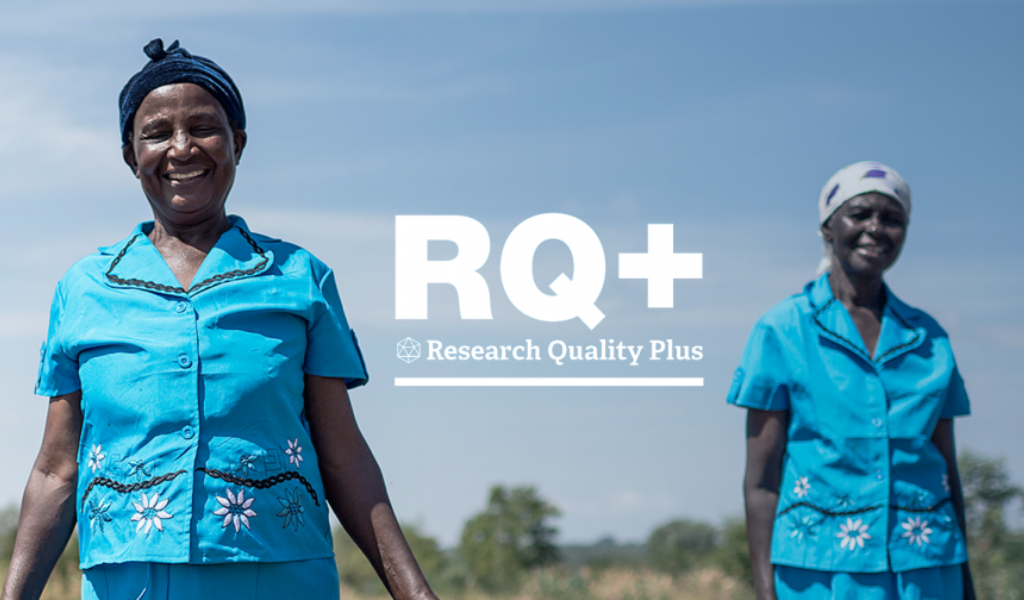As we navigate a deeply uncertain global environment, in which the rules-based order is being abandoned, the stakes have never been higher for taking an evidence-informed approach to policy and implementation.
All those who seek to inform policy and interventions with evidence are under increasing pressure. This includes slashes to aid and threats to academic freedoms forcing us to urgently make the case for the impact of programmes designed to boost economies and promote sustainable development. You may be struggling to demonstrate the value of existing investments or proposing new ones in social policy or the environment. Or perhaps you are seeking to maximise the impact of policies and projects that have reduced resources or hope to fill the vacuum left by collapsing bilateral and multilateral partnerships?
Whatever challenges you face and your hopes for the future, it is essential to demonstrate that you’re making the best possible use of evidence to support your policies and programmes. There are an established and diverse set of tools and skills to help you do this, which can be adapted for multiple geographic and policy contexts. Here are four of the most essential ones.
-
Understanding whose evidence counts
Based on a forty-year literature and the vast experience of practitioners the world over, we know there are many forms of evidence that can influence change. This is not necessarily research evidence in the academic sense but may be the knowledge or lived experiences of practitioners, communities and service users. Expertise from above does not work when based on false assumptions about local context and causal processes. We can take a proactive approach to assessing the quality of evidence based not on traditional academic standards but on its relevance, quality and inclusiveness. There are tools that anyone can use to do this in any context, such as the Research Quality Plus framework.

-
Embracing complexity
We have also learnt that there is no simple linear path between what we do and any subsequent changes in policy or the implementation of programmes. You can identify the differences between what is within your control, the factors you think you can directly influence and the changes in the wider state you hope to contribute to. By taking a more complexity-informed approach we can free ourselves from clumsy log frames that assume action A will lead to outcome B. There is great advice available from multiple contexts on building effective policy research partnerships in ways that acknowledge we are dealing with dynamic systems of change. There are also excellent tools available, such as the development of theories of change or pathways to impact that we can use to develop our thinking and settle on multiple routes to impact.
-
Influencing behaviour change
We also need to understand our audiences if we want to influence change. However, we do not always take this far enough. Do we really know what motivates them, or know enough about their capacity in relevant areas? Consider the civil servant to whom you supply policy briefs or summaries of evidence. Are they motivated by an abstract commitment to evidence informed policy or by the need to deliver evidence of what works to their seniors? Have you considered this and if you have, what are the implications for how you work with them? There is so much advice and best practice in this area and great analytical tools like the Communications, Motivations and Behaviours framework.
-
Developing the essential skills
Fourthly, many of us have direct experience of operating at the interface between policy or programming and research. But how often do you get the chance to share learning with others or test out new techniques? There is so much learning to be shared, such as the unique skill of producing hyper rapid response evidence summaries for policy, the communications of complex science to non-specialists, the development of metrics for monitoring change, and the identification and telling of powerful stories of change.
Learning together
At a time of great uncertainty and disruption it is more important than ever that we make the make the best use of evidence. And in the current climate we will all need to learn how to do more with less. For that we need spaces where we can learn from each other and apply the latest tools and techniques for making better use of evidence.
Whether you’re struggling with the implementation of learning around specific interventions in health, social care or education, or you are seeking to influence policies in health systems, the environment or social justice, there are many tools and approaches that can help you. This is why at IDS we are proud to be running for a sixth consecutive year our online short course on Shaping Policies and Programmes with Evidence. We cover all the areas set out here and more.
